Content Marketing Trends 2023: Stay Ahead in the Changing Landscape

Content marketing has become a cornerstone for brand promotion in the digital age. With consumers increasingly turning to the internet for information and entertainment, businesses need to leverage content marketing to connect with their target audiences effectively. However, in this rapidly evolving landscape, marketers must stay updated with the latest content marketing trends in order to stay ahead of the competition.
This article aims to delve into the key 2023 content marketing trends to watch out for. From personalized content experiences to video content dominance, we will explore the strategies and techniques that will shape the future of content marketing. By understanding these trends and adapting our strategies accordingly, we can maximize brand impact and better engage our audiences.
1. Video Content Dominance
The world of content marketing is constantly evolving, and one content marketing trend that has taken the industry by storm is the dominance of video content. In 2023, video content continues to grow in popularity and consumption, making it essential for brands to incorporate videos into their marketing strategies.
The rise of platforms like TikTok exemplifies the increasing popularity of video content. With its short and snappy format, TikTok has gained millions of users worldwide and has become a go-to platform for entertainment and influencer marketing. Brands are leveraging TikTok’s exponential growth by partnering with influencers who create engaging video content that resonates with their target audience. This type of collaboration allows brands to tap into new demographics and increase their reach.
Another way video content is dominating the marketing landscape is through live streaming. Live streaming events have become an effective tool for engaging with audiences in real-time. Red Bull, for example, has successfully utilized live streaming to host events like extreme sports competitions and music festivals. By live streaming these events, Red Bull not only engages viewers but also expands its reach beyond those physically present at the event.
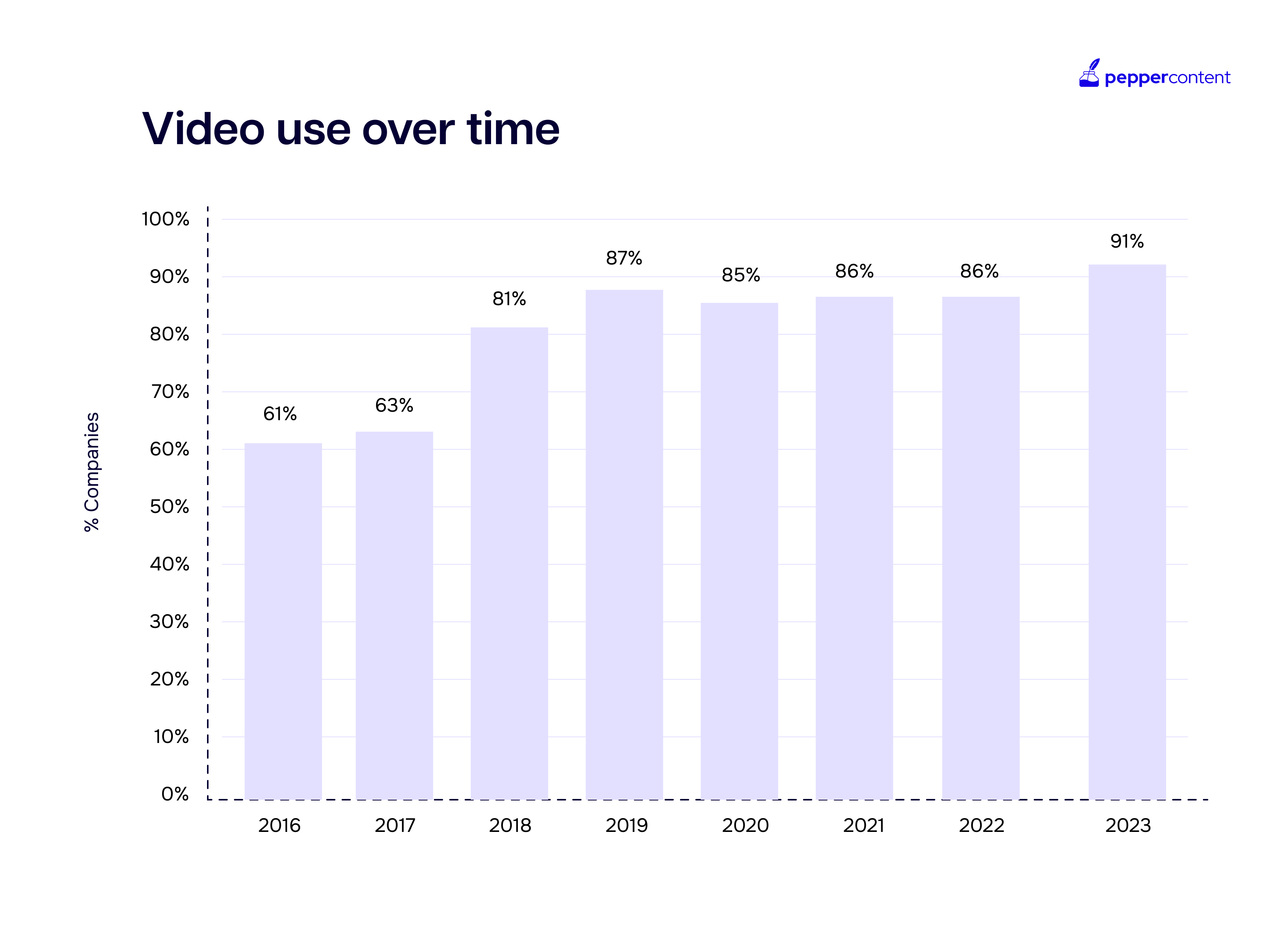
2. Personalized Content Experiences
Customization for enhanced customer engagement
In the fast-paced digital world of 2023, generic content just doesn’t cut it anymore. Consumers are bombarded with an overwhelming amount of information every day, making it crucial for brands to stand out by delivering personalized experiences. By tailoring content to individual consumers’ unique preferences and needs, brands can create a deeper connection and foster higher engagement.
Interactive content driving higher conversion rates
Gone are the days when passive consumption was enough to engage audiences. In 2023, interactive content is taking center stage, offering an immersive and engaging experience that drives higher conversion rates.
By creating interactive content experiences, brands can captivate their audience and encourage active participation. Whether it’s gamified quizzes, polls, or calculators, interactive content provides a fun and memorable way to educate users about products or services while building brand loyalty.
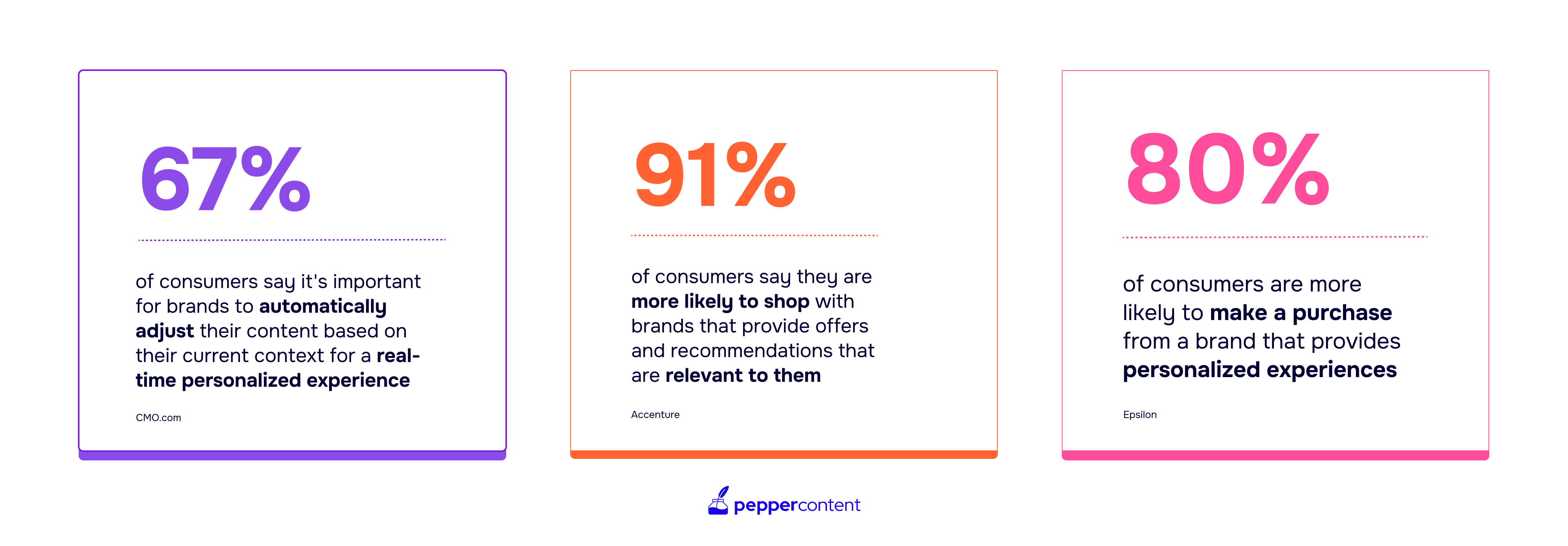
3. Voice Search Optimization
Voice search is rapidly gaining popularity and is set to have a significant impact on SEO strategies in 2023. The rise of voice-enabled devices like Amazon Alexa and Google Home has made it easier for users to search the internet using their voices. Increased adoption of voice search means that content marketers need to optimize their content accordingly.
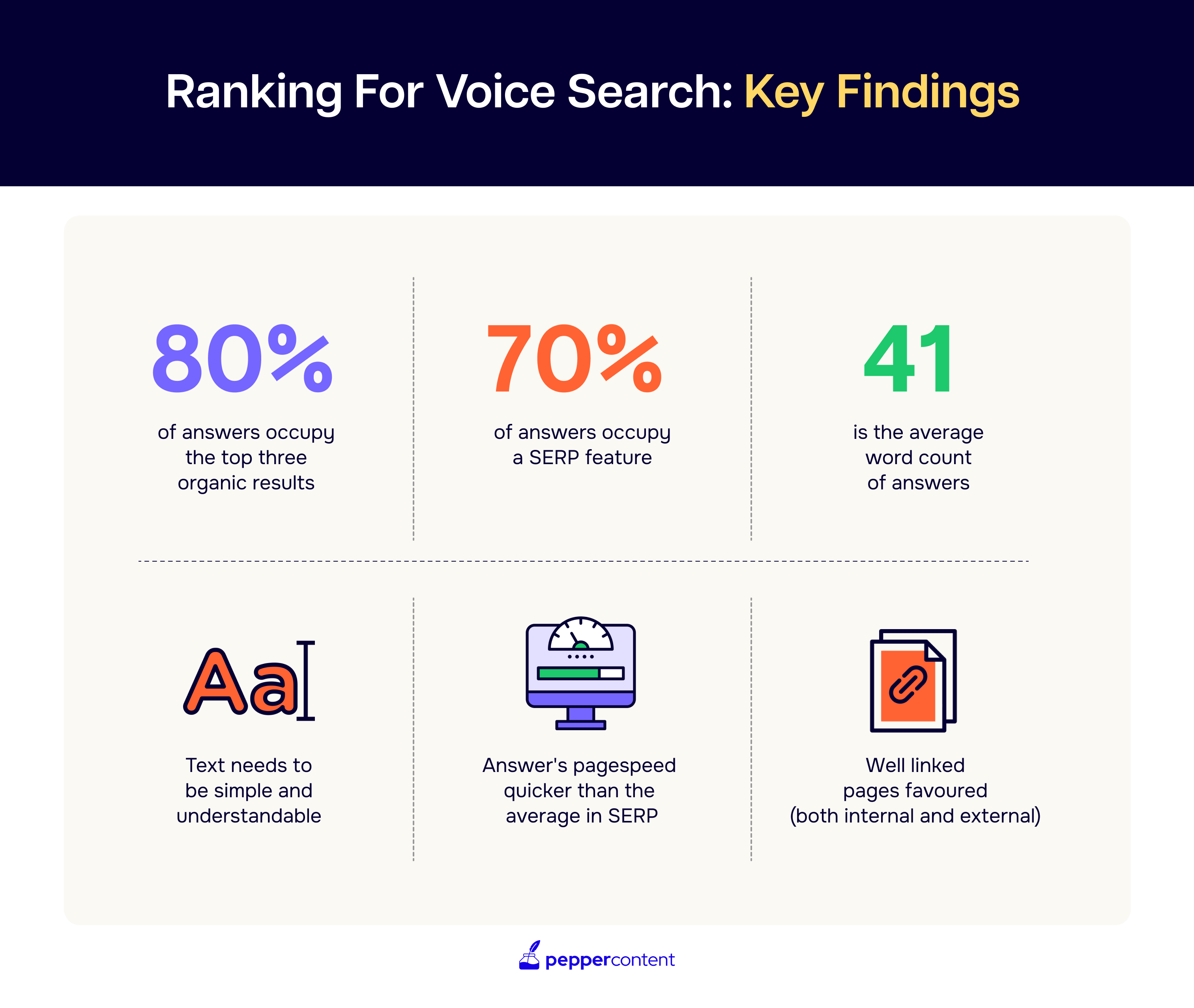
To leverage the benefits of voice search, content marketers should focus on creating conversational content that matches the way people speak. This includes using long-tail keywords and natural language phrases in their content. For example, instead of optimizing for a keyword like “best restaurants,” marketers should consider targeting more specific queries such as “What are the best Italian restaurants near me?” This allows their content to align more closely with the queries that users are likely to make when using voice search.
Additionally, content marketers can take advantage of structured data markup to provide more context to search engines. Structured data helps search engines understand the content better and can improve the chances of having a featured snippet or position zero on the search engine results page.
An excellent example of utilizing voice commands for personalized recommendations is Spotify. The music streaming platform allows users to interact with their devices using voice commands to request songs or playlists based on their preferences. This not only enhances user experience but also provides valuable data for Spotify’s algorithm, enabling more accurate music recommendations.
4. Augmented Reality & Virtual Reality Integration
Augmented Reality (AR) and Virtual Reality (VR) have emerged as powerful storytelling mediums, revolutionizing the way brands engage with their audiences. AR/VR integration has become a key 2023 content marketing trend, providing immersive experiences that captivate and resonate with consumers.
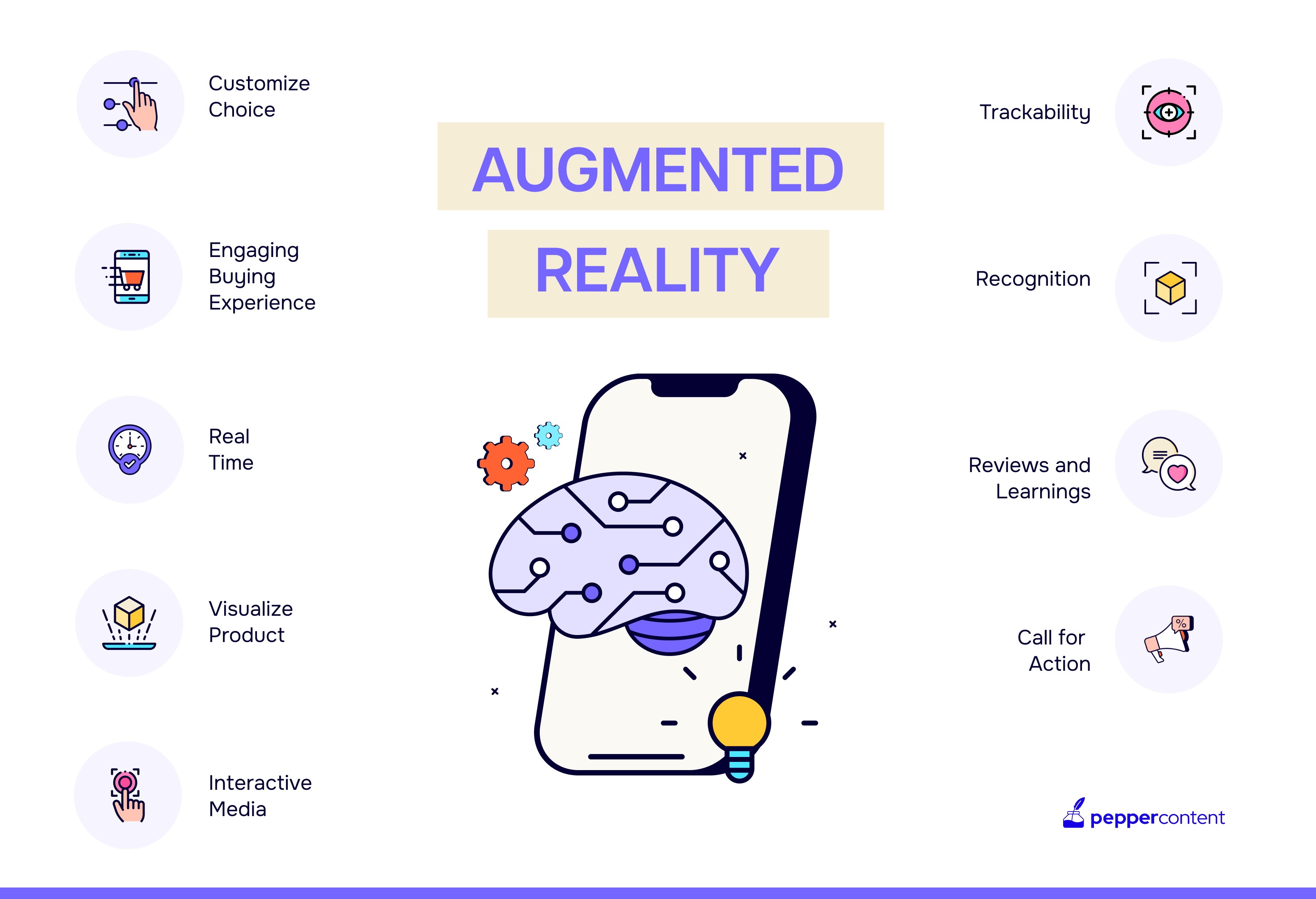
One notable example of AR’s impact is IKEA’s AR app, which allows customers to visualize furniture in their homes before making a purchase. By simply pointing their smartphones at a spot in their living space, users can see how a specific piece of furniture would look and fit in real-time. This innovative use of AR not only enhances the customer experience but also increases confidence in purchasing decisions.
The integration of AR/VR into content marketing strategies enables brands to create memorable and interactive experiences that leave a lasting impression on consumers. By leveraging these technologies, brands can differentiate themselves from competitors and establish themselves as pioneers in their respective industries.
Furthermore, AR/VR integration allows for more personalized and tailored experiences. Brands can utilize these technologies to create virtual showrooms, interactive product demos, or even gamified experiences that engage consumers on a deeper level. This level of interactivity fosters an emotional connection with the brand and increases customer loyalty. This one is also one of the major B2B content marketing trends to look out for,
5. AI-Driven Content Creation
Artificial Intelligence (AI) has revolutionized content creation processes, offering automation and efficiency like never before. With AI technology, brands can streamline their content creation workflows, saving valuable time and resources. One notable example of this latest content marketing trend is The Associated Press, which now uses AI algorithms to generate news reports quickly and accurately. By automating repetitive tasks such as data analysis and article composition, AI allows journalists to focus on crafting compelling narratives that resonate with their audiences.
In addition to automation, AI enables data-driven decision-making and personalization. Platforms like Netflix have leveraged AI algorithms to analyze user data and provide tailored recommendations, resulting in a more personalized viewing experience.
However, it’s important to strike a balance between automation and maintaining the human touch in content creation. While AI can generate content efficiently, it lacks the human creativity and intuition that make stories compelling. Successful content marketing strategies embrace a combination of AI-driven efficiency and human storytelling prowess. READ UP on Pepper CMP where content, data, and teams come together to achieve your marketing goals on time, every time!
As AI technology continues to evolve, marketers should keep an eye on advancements in natural language processing and image recognition. These developments have the potential to take AI-generated content to new heights, allowing brands to create highly engaging and visually appealing assets with minimal manual effort.
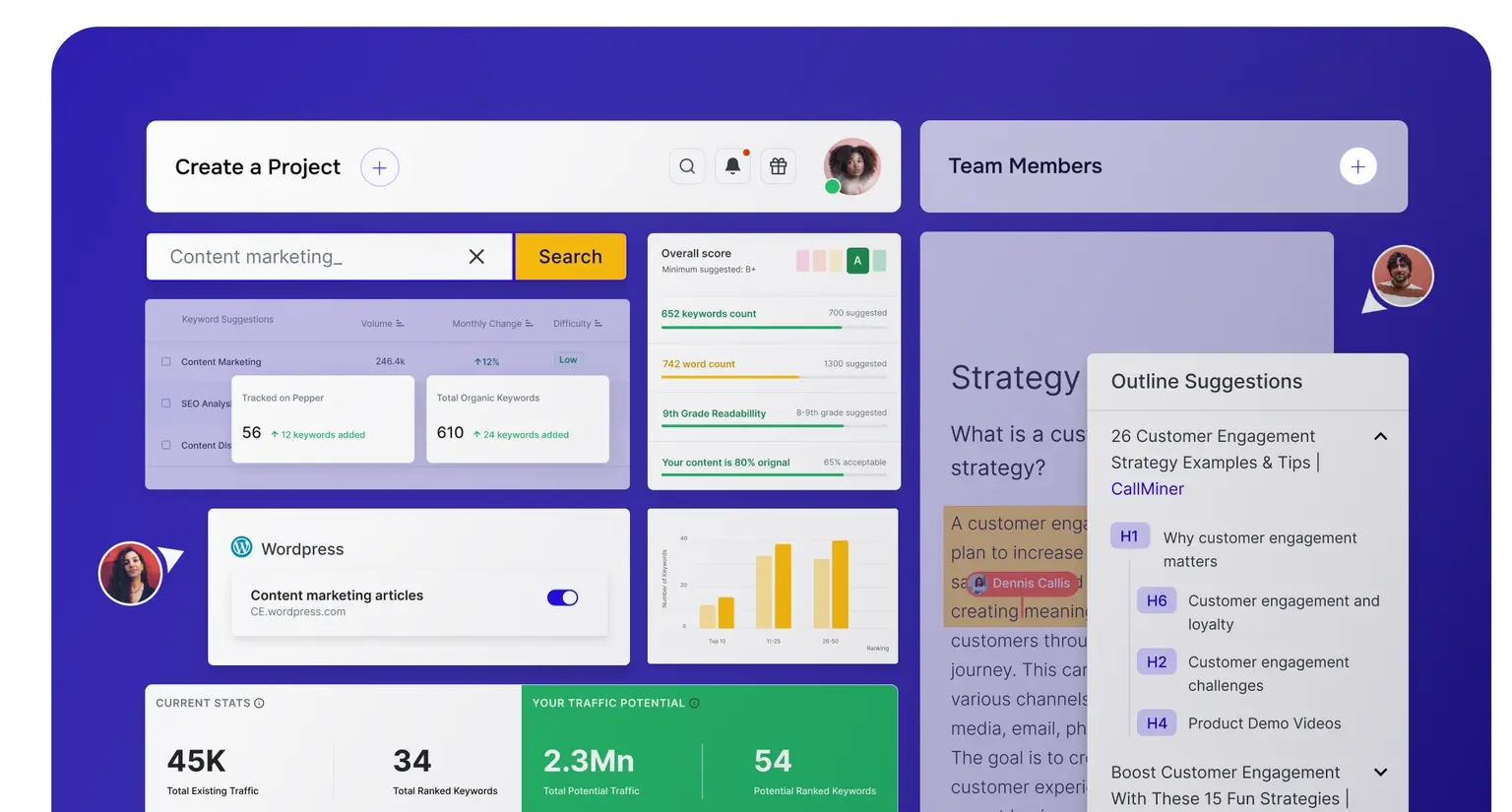
Influencer Marketing Evolution
Influencer marketing has undergone a significant shift in recent years, with brands moving away from traditional celebrity endorsements and focusing more on micro-influencers and niche markets. This content marketing trend is set to continue in 2023 as brands recognize the value of targeted promotion and the importance of authenticity in their partnerships.
Adidas has embraced this shift towards authenticity by partnering with athletes who genuinely align with their brand values. Instead of simply paying athletes to endorse their products, Adidas works closely with these individuals to create impactful content that tells a story and connects with consumers on a deeper level. This approach allows Adidas to tap into the passion and influence of these athletes, creating a more genuine connection between the brand and its audience.

As influencer marketing continues to evolve, brands must prioritize authenticity and genuine partnerships. Consumers are becoming increasingly savvy and can easily sniff out disingenuous collaborations. By working with influencers who truly believe in their products or services, brands can build trust, credibility, and loyalty among their target audience.
Content Distribution Strategies
Content distribution is a crucial aspect of any successful content marketing strategy. In 2023 content marketing trends, we can expect to see a shift in the way brands distribute their content. While social media platforms have been the primary channels for content distribution, there is an increasing trend toward exploring other platforms and mediums.
One notable platform that has gained popularity for content distribution is Medium. Originally known as a blogging platform, Medium has evolved into a hub for long-form, insightful content. Many brands and thought leaders leverage Medium to share in-depth articles, industry insights, and personal stories. The platform’s clean design and user-friendly interface make it an attractive option for both creators and readers.
Another emerging trend in content distribution is the rise of podcasting. Podcasts have become an effective channel for brands to reach a wide audience and engage with them on a deeper level. With the success of shows like “The Joe Rogan Experience,” which attracts millions of listeners per episode, more brands are realizing the potential of podcasting as a content distribution strategy.
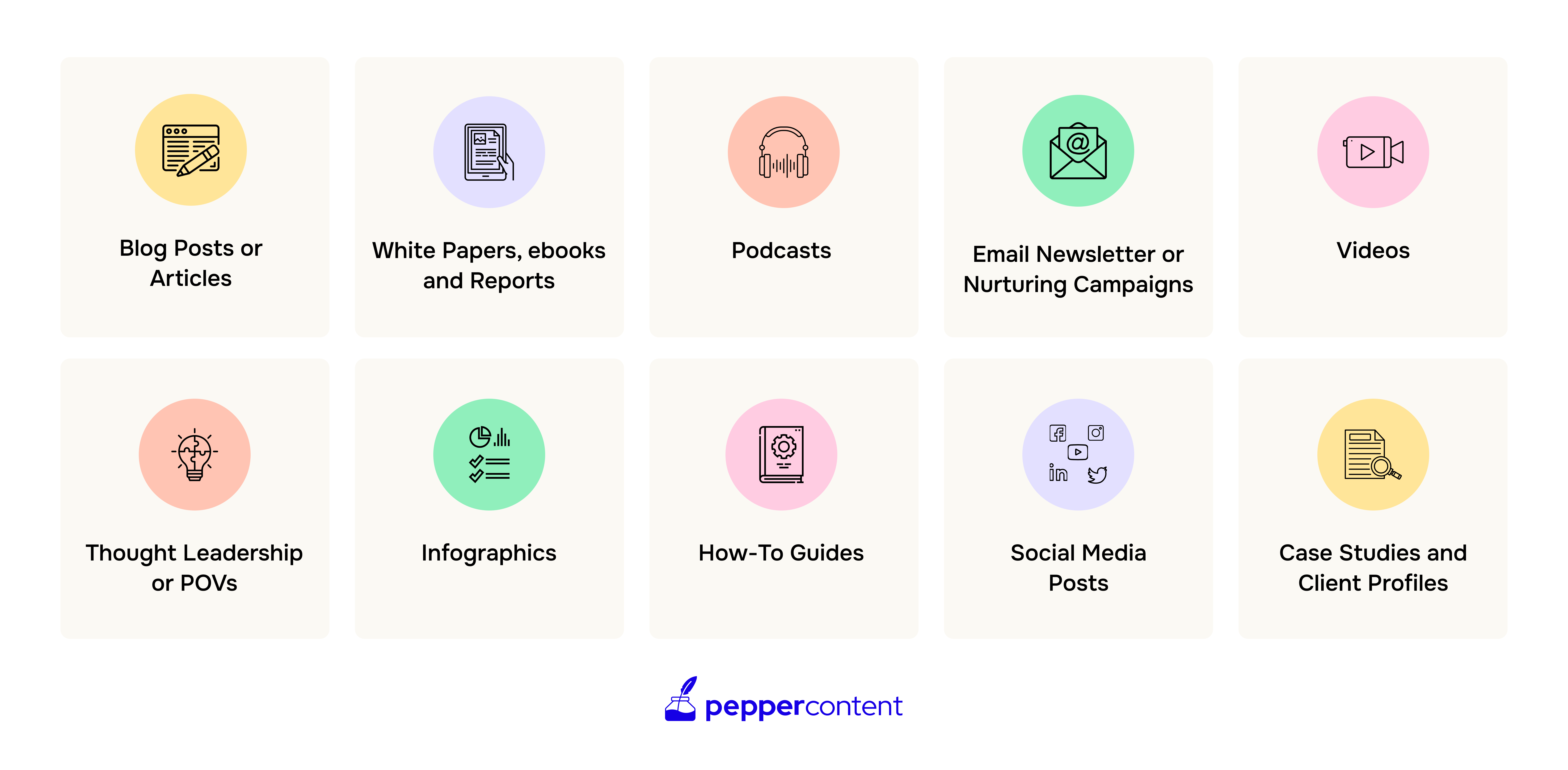
The content marketing landscape is constantly evolving, and staying ahead of the latest trends is crucial for brands to make a lasting impact. In 2023, several key trends are shaping the industry and presenting exciting opportunities for marketers.
By embracing these trends and adapting to the changing landscape, marketers can position their brands for success in 2023 and beyond. It’s time to stay ahead of the curve and make a lasting impact in the world of content marketing.
Latest Blogs
Learn how to rank on AI search engines like ChatGPT, Perplexity, and Gemini by optimizing your content for authority, structure, and relevance. Stay ahead in AI-driven search with this strategic guide.
Explore the best healthcare SEO services for your medical practice. Improve online visibility and effectively reach more patients in need of your services.
Discover top social media agencies specializing in banking solutions, enhancing financial services and driving engagement.
Get your hands on the latest news!
Similar Posts

Demand Generation
8 mins read
Mastering the Art of Building an Effective Content Marketing Funnel in 2024

Demand Generation
6 mins read
Fueling Demand Generation: How Buyer Personas Catapult Your Content Marketing Strategy

Demand Generation
8 mins read